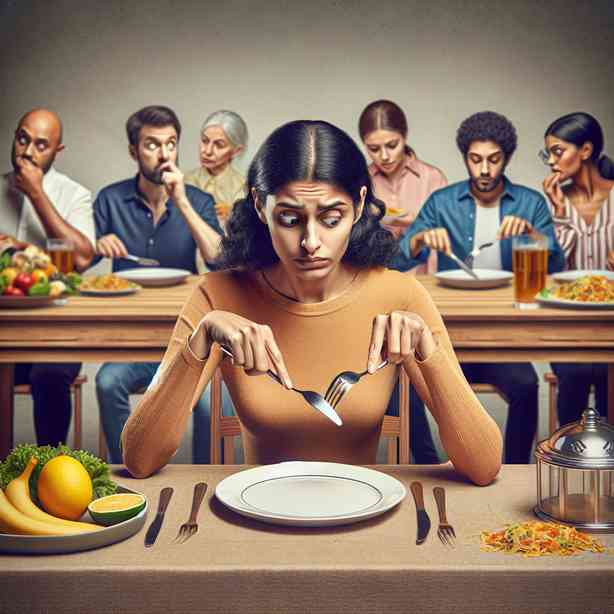
When you tell someone that you’ve “already eaten,” it may seem like a harmless excuse, but this simple phrase can carry a variety of implications and emotions beneath the surface. The nuance of this statement invites reflection on our relationships with food, the social contexts of eating, and the ways we communicate our needs and boundaries. Let’s delve deeper into the layers of meaning behind this common statement and explore its cultural, psychological, and social dimensions.
At its core, the expression “I’ve already eaten” serves as a polite way to decline an invitation to share a meal. Food has long been a central aspect of social gatherings, symbolizing hospitality, connection, and community. When we decline, it can evoke feelings of discomfort, especially if the invitation was extended by someone who put effort into planning the meal. However, there are often valid reasons behind saying you’ve already eaten that go beyond mere politeness.
In various cultures, sharing food is a deeply rooted tradition. It fosters relationships and builds bonds within families, friends, and even between acquaintances. In this context, to decline an offer for food, especially without a sufficient reason, can be perceived as rejecting not just the food itself but also the gesture of kindness. Saying you’ve already eaten can serve to soften this rejection, allowing the inviter to save face, while enabling you to maintain boundaries regarding your time and preferences.
However, there is an inherent complexity when it comes to food and relationships. For some individuals, food is intertwined with deep-seated emotions and histories. Conversations around food can evoke memories of family gatherings, traditions, or even conflicts. The dynamics can be particularly intricate for those who have experienced food insecurity or body image issues. In these cases, invoking the phrase “I’ve already eaten” may reflect a deeper need to assert control over personal choices or expressions of self-identity in the face of societal pressures.
This phrase can also tie into our personal narratives about food and eating habits. In an age where diet culture dominates social media and lifestyle choices are scrutinized, one might feel the need to assert that they are mindful of what they consume. The act of saying “I’ve already eaten” might serve as a shield against judgment, whether real or perceived, from peers and co-workers. It can be an attempt to communicate that one is taking care of their health or simply managing their dining choices based on personal preferences or dietary restrictions.
Additionally, saying you’ve already eaten can indicate a desire for independence. It can be a declaration of self-sufficiency, signifying that you are capable of managing your own dietary needs without external pressure or assistance. Particularly for those who are used to navigating various social situations alone, this phrase acts as a means of reinforcing autonomy. It sets a boundary, stating that your meal choices are yours to determine without feeling compelled to engage in obligations to share food.
Yet it is essential to be reflective and mindful about the ways we communicate such statements. While it may seem convenient to utter “I’ve already eaten,” it’s crucial to consider how these words may impact the feelings of others and the underlying messages they convey. It could be insightful to explore alternative responses that openly express gratitude for the invitation while gently declining. For example, you might appreciate the offer and suggest meeting at a later time for a meal. This approach fosters connection, leaving the door open for future interactions without completely shutting oneself off from social opportunities.
Moreover, understanding the context in which you’re declining an offer is key. If the statement “I’ve already eaten” is consistently used with a particular audience, it could send signals that you are uninterested in their company or unappreciative of their gestures. Clear and considerate communication can often go a long way in maintaining healthy relationships. It might even be worthwhile to share why you already ate — whether it was due to dietary restrictions, a busy schedule, or simply someone else’s prior invitation. This can help in forging deeper connections and being transparent about your lifestyle choices.
Furthermore, this phenomenon also raises questions about expectations and obligations in social contexts. In many cultures, refusing an offer to share food can sometimes lead to feelings of guilt or awkwardness for both the host and the guest. On one hand, hosts may feel rejected, while on the other hand, guests might worry about being rude or unappreciative. It opens up a dialogue about how we navigate social expectations and individual desires, ultimately reflecting our personal values about food and social interaction.
In a broader sense, it can be beneficial to reflect on the societal pressures surrounding food. With the advent of social media, there has been a marked increase in dietary discussions, health fads, and meal-sharing narratives. It’s important to recognize that food is not just about sustenance; it symbolizes culture, heritage, and identity. The ways in which we communicate our food choices, including the subtle ways we decline invitations, reveal much about our personal relationships with food, as well as the cultural narratives we subscribe to.
In conclusion, the phrase “I’ve already eaten” encompasses much more than a polite refusal. It signifies boundaries, reflects individual preferences, and highlights the complex dynamics of our relationships with food and social interaction. By being mindful of the implications of our words, we can better engage in meaningful conversations around food, reinforcing connections while honoring individual choices. It invites us to explore how we communicate our needs, the impact of our interactions, and ultimately, how we cultivate our relationships through the act of sharing meals together.


